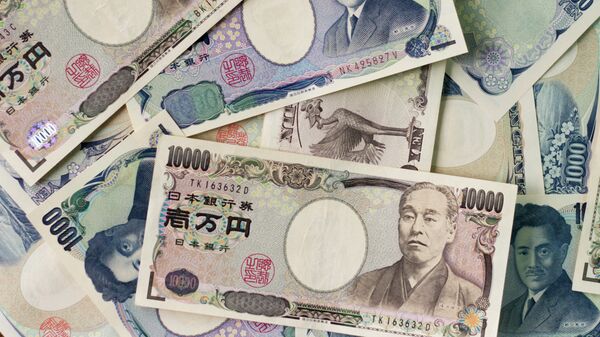During the economic boom in the 1980s and even during a stagnation in the 1990s, Japan was the largest foreign holder of US debt, according to the US Department of Treasury. However, Tokyo was overtaken by a rapidly increasing Chinese economy in 2008. Recent slowing in Chinese growth, and a bold economic plan currently being implemented by Japanese Prime Minister Shinzo Abe, has caused the former to sell US debt and the latter to buy it.
Previously, the Wall Street Journal reported that Japan, in April 2015, had surpassed China as a holder of American debt. However, this lasted for only a few days before Chinese holdings in the US Treasury again surged. Those holdings have drastically declined in Q3 and Q4 of 2016, from about $1.25 trillion in June, to $1.12 trillion in December. This is the lowest Chinese holding of US debt since 2012, Bloomberg reported. Japanese debt holdings now sit at $1.13 trillion.
Although the financial practice is heavily politicized, many economists point out that foreign holdings of US debt is a positive for the American economy. In a 2012 article in Quartz, finance journalist Matt Phillips wrote that a country like Japan buys US debt "to weaken its own currency in order to support its export-dependent economy. (In general weak currencies favor exporters, because it makes their wares cheaper to foreigners.) To do this it sells yen, buys dollars and—to put the dollars somewhere—uses those dollars to buy Treasury bonds. While the US isn’t in the greatest fiscal shape, its relatively pristine credit history means that conservative investors still like to own dollar-based investments. The safest one is US government debt." This directs foreign money into the American economy, Phillips argued.
But if economic growth stagnates, countries normally strengthen their currency to slow inflation. The fastest way to increase the value of currency, according to British economics teacher Tejvan Pettinger, is to sell or simply stop buying foreign-exchange assets. The pace of Chinese economic growth has been steadily declining since 2010, according to Trading Economics, from over 12 percent growth in Q1 2010, to less than 7 percent in Q3 2016.
Meanwhile, the Japanese central bank has set a high target of currency inflation to devalue the yen, encouraging foreign tourism and the purchase of Japanese exports. Just as China seeks to strengthen the yuan by selling US debt, Japan wishes to weaken the yen by purchasing it. These coinciding trends have seen the US’s two largest foreign creditors switch places.
The Council on Foreign Relations reports that the United States has had a trade deficit since 1982, as foreign investors know that the US dollar is a stable asset to purchase as a reserve currency. However, this has granted major US debt holders certain political power over the United States, in the form of a degree of influence over the dollar’s value, as they are able to alternatively flood or deprive the market of the dollars they have bought.
Fortunately for the US, the dollar remains the world’s only reliable reserve currency, compared to the low-value yuan and the unstable euro. A massive flooding of the market with US dollars would "do more harm to China than to the United States," according to a 2013 Pentagon report.
Unlike China, Japan, an ally and partner of the United States, is much less likely to threaten the United States with its financial holdings. President-elect Donald Trump has promised to label China a currency manipulator once he takes office in January.





